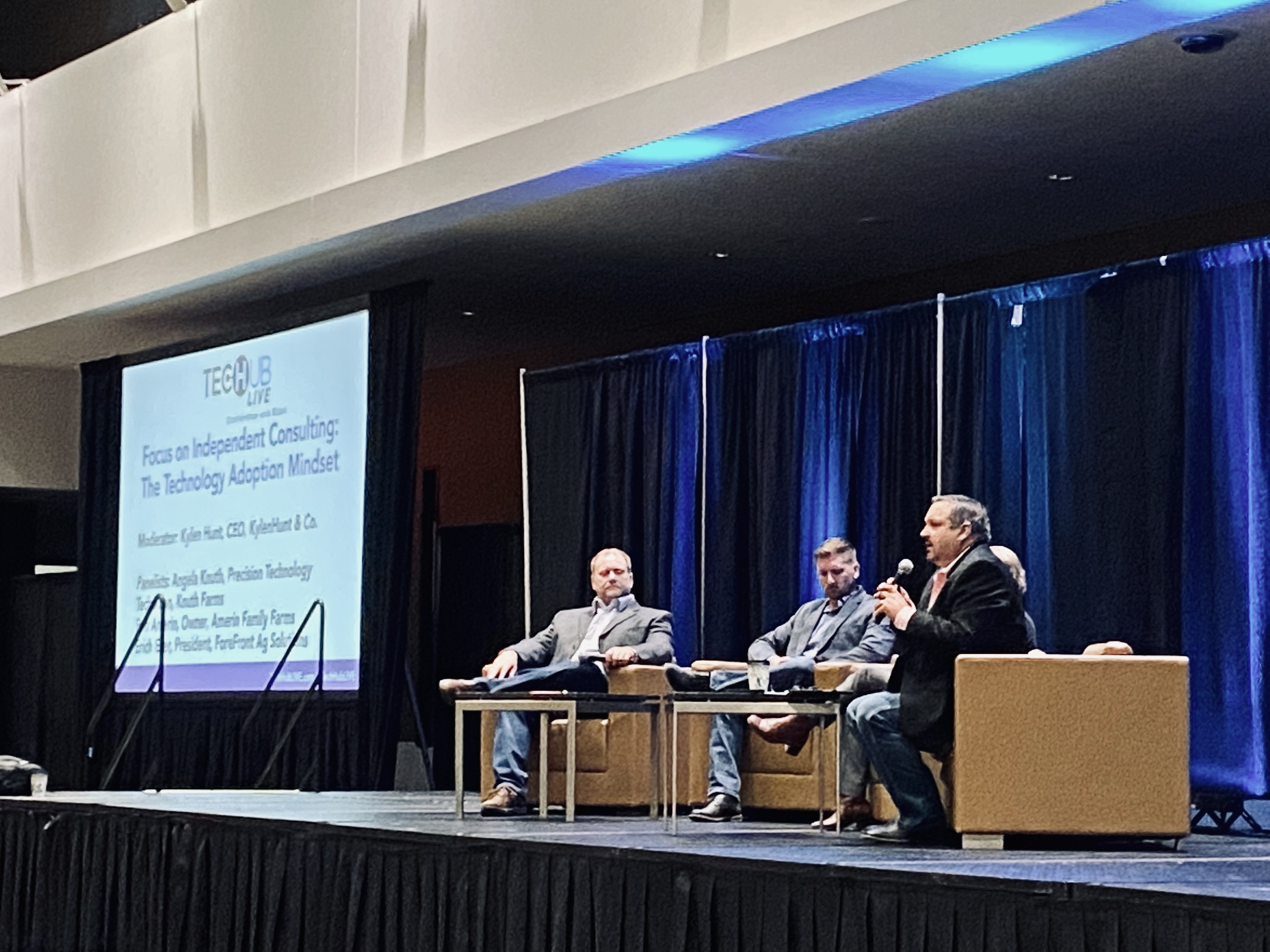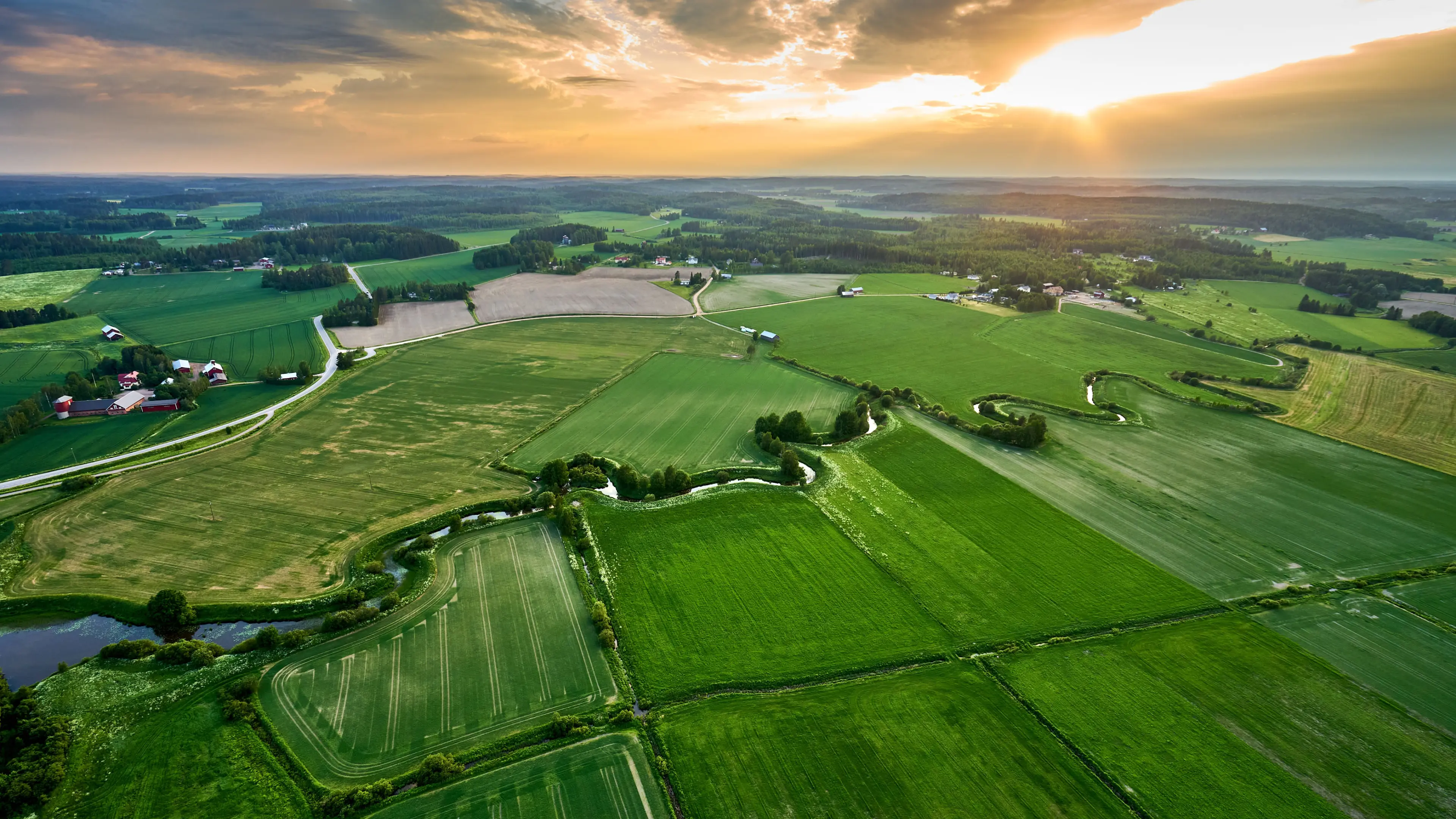Ag tech innovation has reached what seems to be terminal velocity over the last few years. In these years, we’ve refined drone technology, autonomous machinery and precision ag software (among other technologies) to make our farms more efficient and more productive. In fact, according to a study conducted by Purdue University, only 7% of dealerships across the country were not using precision agriculture technology in 2020. And the numbers are only expected to climb from there, according to the same survey.
We recently attended Tech Hub LIVE, a conference that brought agronomists, retailers, and ag tech specialists together for two days of education and networking. Together, we discussed recent innovations in ag technology, the barriers to widespread adoption, and the future of agriculture. Over the course of these two days, 3 messages became clear:
Growers are Key to Innovation and Adoption
Panels on technology adoption among both growers and dealers emphasized that technology is intended to help the grower reach his or her goals on the farm. New technologies will only be effective if they are created with a clear understanding of growers’ goals, pain points and pitfalls, and they will only be useful if they help growers become more efficient.
As Chad Colby, ag technology specialist and owner of Colby AgTech shared in his opening session, “Time is your most valuable asset. Use technology to create more time for yourself.”
This idea — creating efficiencies on the farm — drives both technology adoption and innovation. As we begin to use ag technologies to reform our food systems and supply chains, we’ll need to keep growers’ priorities in mind and marry those priorities with those across the supply chain.
.png)
Adoption is Behind Innovation
One of the largest hurdles in agriculture technology is adoption — incorporating new technologies into our food production. Innovation happens quickly, but getting new products onto farms has proven to be a slow process.
Part of this is because growers need a business case to adopt new technologies. If it’s not going to provide a decent ROI, it’s not worth testing on the farm. Chad Colby urged Tech Hub LIVE attendees to consider this idea critically: “Margins are tighter than ever, and input costs are through the roof, but you’ve got to try things differently. You’ve got to get outside the box.” Thinking creatively will be the key to innovation in agriculture, and trying things differently often requires adopting new technologies and guiding on-farm innovation.
How can off-farm players influence tech integration? They can help provide a business case for growers. Andrew Gladden, IT manager at Luckey Farmers, Inc. in Ohio, said, “We tend to have analysis paralysis in this industry. We need to compile the data and pull insights out of it quickly. When we start looking at data over time, and put it in a place where we can understand it, we can affect our costs and bring that cost down to the grower.”
He also made a resonant point about the role of innovators and retailers in agriculture:
“We must provide the environment for technology to grow, for efficiency to grow and for the industry to evolve over time.”

The Future is Bright for Sustainability
Discussions at Tech Hub LIVE proved that innovative new programs, like sustainability initiatives and carbon markets, have a bright future in agriculture. Jeff Wessels, Acre + Advisor from Frenchman Valley Coop, discussed carbon markets in a panel at the event: “I’m a big believer in sustainability and environmental stewardship...We work hard to cut inputs down for our customers. I am a 100% believer that agriculture can clean a lot of our [sustainability] issues.”
An executive roundtable presented by CropLife also emphasized the importance of stabilizing the carbon markets. Executives at John Deere, TopCon and Trimble, Inc. all discussed the future of carbon markets with confidence. While the markets aren’t perfect today, CropLife Media Group Editor Paul Schrimpf emphasized, “just like any mega trend, this will go through life cycles and changes. It’ll figure itself out.”
An executive from TopCon mentioned, “there are many companies trying to figure out [carbon markets]. We want to talk to the companies that are figuring it out.”
Undoubtedly, carbon markets are receiving time, attention and resources from key industry stakeholders. At Regrow, we are excited to be shaping the future of carbon markets and sustainability initiatives for growers.
.avif)


